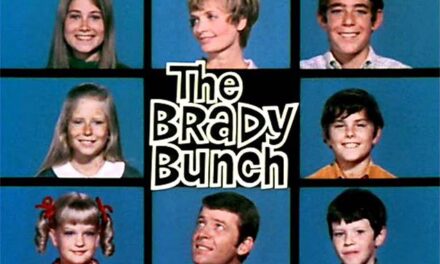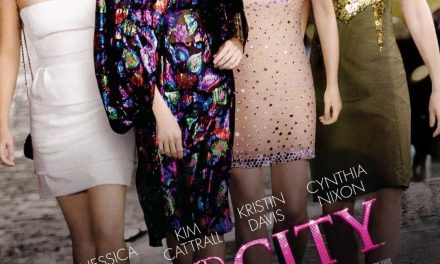Backstage and background
While attending the 2024 CST Conference: Sustainability and Television, which ran from 24th June to the 4th of July, the question of representation of British Asians in relation to equality and diversity arose. Equality and diversity are further elements of the UN’s sustainable development goals. The conference promoted the theme of equality and diversity in striving for wider and less stereotypical representation of minorities on television as well as addressing how barriers to inclusion may be removed in the industry itself. This blog looks at the work of one representative of these minorities, namely Meera Syal, the daughter of Indian migrants.
Migration to Britain from South Asian groups was particularly strong in the 1950s and 1960s (Das, 2022), leading to efforts in the BBC, particularly through its Birmingham studios and the Asian Programming Unit (APU) based there, to cater to these groups. For South Asian people television presented an opportunity and a problem in their attempt to keep to their cultural roots and assimilate into British culture.
The APU encapsulates the complex relationship British TV has with Asian identities (Malik and Newton, 2017). The aim was to provide Asian content on a more mainstream channel and at prime time. But this came at the cost of appealing to a predominantly white audience. Often, this led to stereotyped depictions of British Asian identity. To cater to a wider audience, south Asian stories became diluted to get these prime-time TV slots and media attention. Consequently, many stories about British Asians became predictable, inauthentic, and completely othered (Malik and Newton, 2017:59). This historic trouble of Asian representation on British television is ever present as many British Asian shows must still jump through hoops for commercial success. A good example of such a programme is Citizen Khan (2012-2016) which repeats many stereotypes. This is true despite the BBC and Channel 4 having committed to showing the multicultural nature of Britain (Malik and Newton, 2017). In contrast, Syal took the stereotypes and satirised them to be comedic for South Asians.
Meera Syal (born 1961) is a British Asian writer, comedian, and actor and is best known for her roles in Goodness Gracious Me (1998-2001) and its spin off the The Kumars at No.42 (2001-2006). Syal’s efforts in Goodness Gracious Me were pioneering because they created a mainstream comedy that was devoted to a growing South Asian community as well as a diverse mainstream audience. Syal (Pudcast, 2024) says that from the outset TV shows such as Goodness Gracious Me and the Kumar’s at No.42 were comedies created for South Asian people by South Asian people. Additionally, Syal’s comedy is based on ‘universal experiences’ (Shackle, 2011) and used comedy to bring attention to issues that affect British Asians (Shackles, 2011). Syal purposely uplifts and tells stories that centre on British Asian women (BAFTA interview, 2024), hence leading to the infamous character of Nani in The Kumars at No.42. Nani offered a humorous and memorable figure – flirty, crass and nosy. Syal’s insider perspective of British Asian culture enables her to subvert traditional stereotypes and narratives. Thus, Syal’s work was one of the first pioneering, mainstream attempts to give a South Asian perspective within British television after the productions of Birmingham’s Pebble Mill and the APU, 1972-1996) which were not always successful.
Syal (BAFTA interview, 2024) credits her career to right timing and the success of her screen play Bhaji on the Beach (Chandha, 1993). Despite being a household name, Syal in her interview with Paul Choudary (Pudcast, 2024), discusses how hard it was to create these shows. The Kumars at No.42 was abruptly cancelled by the BBC despite its success. Therefore, the disregard for British South Asian voices and representation were at the time reinforced (Malik and Newton, 2017).
Syal’s Legacy
The topic of transgressive South Asian femininities is also picked up in ITV’s We Are Lady Parts (2021-) which focuses on an all-women Muslim punk band. The show is revolutionary as it subverts the typecasting of the Muslim girl being oppressed by ultra conservative parents (Sarah Kameela in The Mixed-up Podcast, 2023). Instead, being Muslim and women of colour are just aspects of their characters. Therefore, these characters offer a more complex and less stereotyped representation of the modern Muslim woman. These women are allowed to be messy, flawed and contradictory and do not need to be ‘saved’ or ‘liberated’ from their religious belief. For example, Momtaz (Lucy Shorthouse) chooses to be fully veiled and never takes off her Niqab. Similarly, the show dissects how Asian and Muslim identities are not homogenous. Manzoor’s We Are Lady Parts (according to Kameel in The Mixed-up podcast) was based upon her own life experiences. Furthermore, the importance of this show is sealed by the guest cameo from Meera Syal in the second season.
Man like Mobeen (2016-) is another show benefitting from Syal’s influence. The show is about Mobeen (Guz Khan) who is trying to raise his little sister Aqsa (Dúaa Karim) when their mum goes to Pakistan. The programme focuses on British Asians grappling with British society, identity and experiences. Consequently, Man like Mobeen builds on Syal’s legacy of satirising stereotypes to discuss taboo topics. For example, it uses the racist stereotypes against the characters to illustrate the ridiculous notion of them (Ilott, 2018). Additionally, Aqsa represents another complex female British Muslim character who regularly subverts the stereotype of oppression (Ilott, 2018). Instead, Aqsa is full of agency, and Mobeen respects and openly adores her, which is rare on British television. Man like Mobeen attracted a significant viewership (Crae, 2023), and is successful in its realistic and humorous depiction of British Asian Muslim life, suggesting representations that speak to British Asian experiences can attract high ratings. Consequently, Man like Mobeen and We Are Lady Parts both build on Syal’s legacy of satirical comedy, wider representation of British Asians, and breaking stereotypes to discuss taboo topics – racism and Islamophobic stereotypes.
Uroosa Rashid is an undergraduate at Edge Hill University studying BA (Hons) Religion. She is currently working as an intern under the stewardship of Dr Elke Weissmann. The internship was financed by Edge Hill University’s RIMES (Research Internships for Minority Ethnic Students) which aims to get more students from minorities backgrounds into research careers.
References
BAFTA, 2024. Meera Syal talks writing Bhaji On The Beach and Goodness Gracious Me | BAFTA [online video]. Available from: https://youtube.com/watch?v=2bGZsremaPc [accessed 2.09,24]
Bhaji on the Beach [DVD], 1993. Gurinder Chandra dir. UK: Film 4 Productions, Channel 4.
Crae, R., 2023. ‘Stand-up is where I get to have proper fun’: Life according to Man Like Mobeen star and comedian Guz Khan. The Sunday Post. Available from: https://sundaypost.com/fp/stand-up-is-where-i-get-to-have-proper-fun-life-according-to-man-like-mobeen-star-and-comedian-guz-khan/. [accessed 4.10.24]
Citizen Khan, 2012. Season 1, Episode 1[online]. BBC iPlayer. Available from: https://bbc.co.uk/iplayer/episode/p00vh04w [accessed 29.08.24]
Das, D., 2022. Sunday Sunday Here Again: Indian Cinema on Channel 4. Viewfinder Magazine. Available from: https://learningonscreen.ac.uk/viewfinder/articles/sunday-sunday-here-again-indian-cinema-on-channel-4/ [accessed 22.08.24]
Four Lions, 2010 [online]. Chris Morris dir. UK: Film 4 Productions, Warp Films. Netflix. Available from: https://netflix.com/gb/title/70129391 [accessed 26.08.24]
Goodness Gracious Me, 1998. Season 1, Episode 1[online]. BBC iPlayer. Available from: https://bbc.co.uk/iplayer/episode/b0077f87 [accessed 13.09.24]
Huq, R., 2013. Situating Citizen Khan: Shifting representations of Asians onscreen and the outrage industry in the social media age. South Asian Popular Culture. 11 (1), pp. 77–83. Available from: https://doi.org/10.1080/14746689.2013.765218.
Ilott, S., 2018. Man Like Mobeen: BBC comedy defies Muslim stereotypes. Theconversation.com. Available from: https://theconversation.com/man-like-mobeen-bbc-comedy-defies-muslim-stereotypes-90195.
Labidi, I., 2011. Terrorism, Violence, and the Collision of Masculinities in “Four Lions”. Journal for Critical Education Policy Studies. 9 (1), pp. 375–390. Available from: https://edgehill.on.worldcat.org/oclc/747987457.
Man Like Mobeen, 2016. Season 1, Episode 1: Bagpuss [online]. BBC iPlayer. Available from: https://bbc.co.uk/iplayer/episode/p05pgksp [accessed 12.09.24]
Mixed Up, 2021. We Are Lady Parts star Sarah Kameela Impey on carving out space in an industry not made for you, joyful representation of Muslim women and subverting old tropes [podcast]. Available from: https://open.spotify.com/episode/0aYtU4x6mn7VKCMYnsKQ1P [accessed 2.09.24]
Newton, D. M. and Malik, S., 2017. Adjusting the contrast : British television and constructs of race. 1st ed. Manchester: Manchester University Press. Available from: https://academic.oup.com/manchester-scholarship-online/book/17226/
Shackle, S., 2011. A tale of two heritages: Samira shackle meets Meera Syal, a British Asian “national treasure”. New Statesman (1996). 140 (5058), pp. 42.
The Kumars at No.42, 2001. Season 1, Episode : Richard E. Grant and Michael Parkinson [online]. Box Of Broadcast. Available from: https://learningonscreen.ac.uk/ondemand/index.php/prog/00156806 [accessed 11.08.24]
The Paul Choudary PudCast, 2024. Meera Syal CBE [podcast]. Available from: https://open.spotify.com/episode/7JjmgoYqz2hAbKpBLBYG5e [accessed 1.09.24]
We Are Lady Parts, 2021. Season 1, Episode 1: Play something [online]. Channel4. Available from: https://channel4.com/programmes/we-are-lady-parts [accessed 28.08.24]





